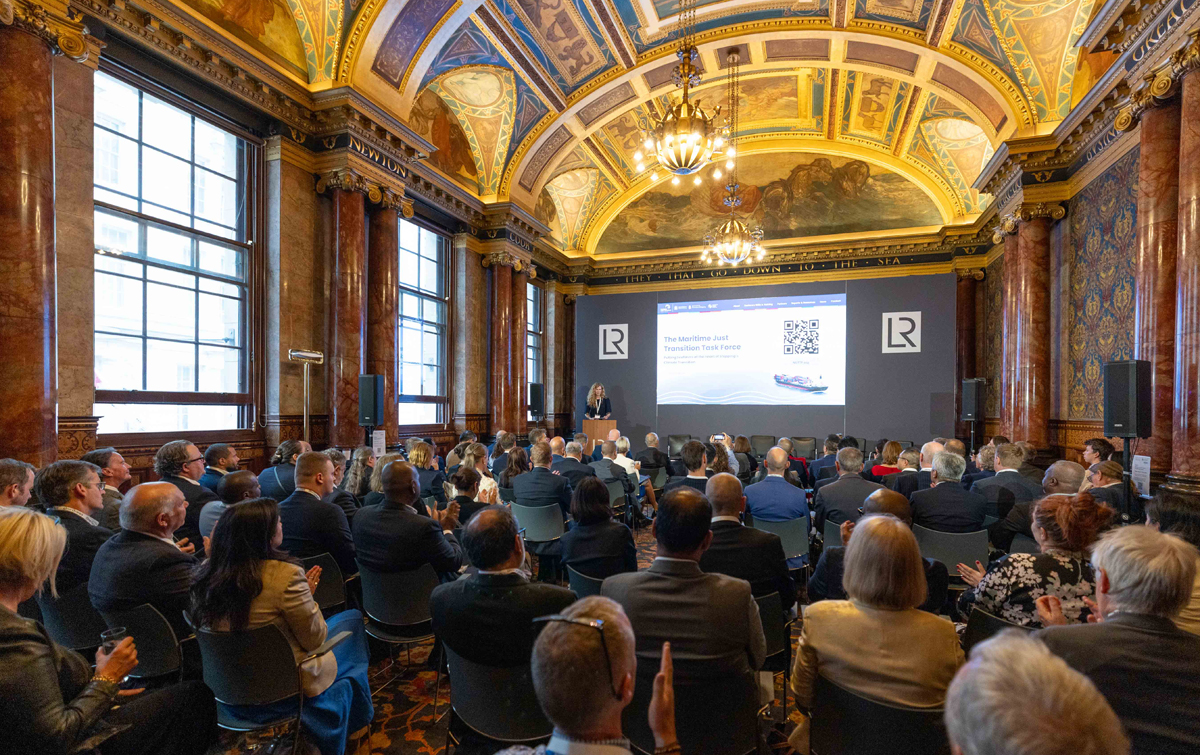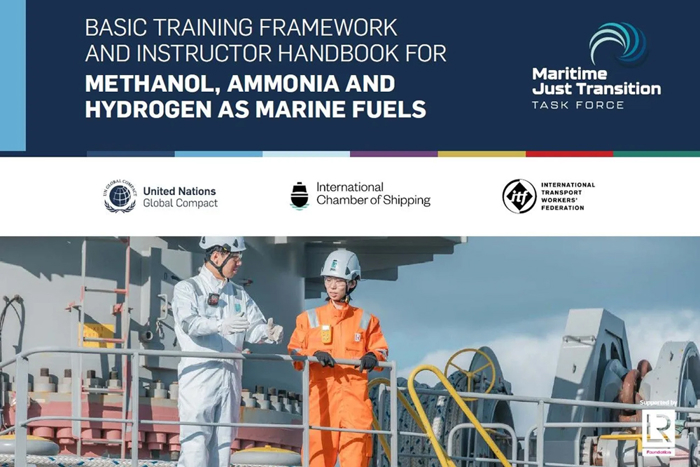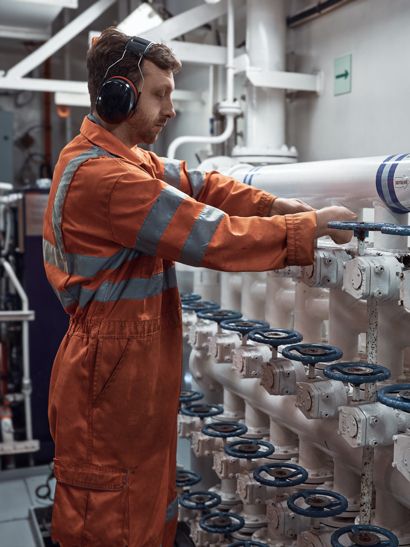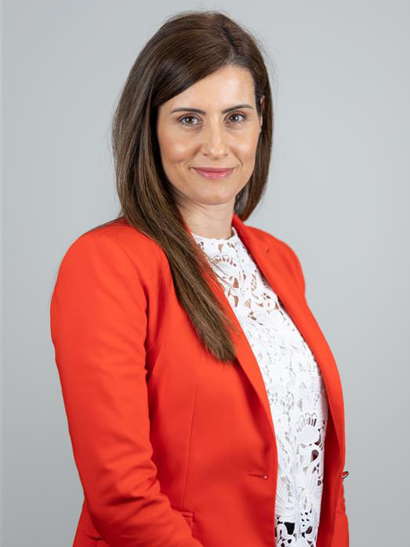With shipping moving towards a low-carbon future, the conversation has shifted from technology to people. Beyond the engineering breakthroughs and regulatory frameworks lies an equally complex challenge: preparing the global maritime workforce for the safe, skilled operation of vessels powered by alternative fuels and new technologies. It is within this human dimension that LR, through its Maritime Decarbonisation Hub (The Decarb Hub), has taken a leading role in envisaging how seafarers will navigate the fuels of the future.
This leadership has been realised through its pivotal contribution as technical lead for the first cross-sectoral coalition, which places seafarers at the heart of the industry’s energy transition. In collaboration with the partners of the Maritime Just Transition Task Force (MJTTF), the International Maritime Organization (IMO), and the World Maritime University (WMU), The Decarb Hub played a crucial role in shaping the first interim training frameworks for seafarers working on vessels powered by methanol, ammonia and hydrogen.
Launched on 17 September 2025, during LR’s Maritime Human Capital Management Forum at London International Shipping Week, the frameworks mark a significant milestone in maritime education and training. Their release addresses the urgent need to empower the industry’s workforce with the knowledge, skills, and competencies required to operate next-generation vessels safely and effectively.

“While much of the conversation about decarbonisation focuses on hardware and regulation, the MJTTF training project for seafarers in decarbonisation sheds light into the human element; the people that will propel the transition"
What the frameworks include
The training frameworks are designed to educate seafarers across all ranks, from entry-level crew to senior officers. Each deliverable is accompanied by a comprehensive instructor handbook that introduces a holistic, risk-based context to seafarer competency development.
The project’s outputs include a consolidated framework for methanol, ammonia and hydrogen, with additional advanced learning materials tailored to the associated risk profiles for each specific fuel.
Download the frameworks from the Maritime Just Transition Task Force website


Why new training frameworks matter
The move toward alternative fuels and new technologies is not purely about the transformation of systems’ engineering but also a bold decision to apply Human Factor Integration (HFI) principles, to ensure that seafarers’ requirements are recognised and employed. Coherent training frameworks reflect appropriate safe and fit for purpose design, through to vessel commissioning and beyond. Alternative fuels such as methanol, ammonia and hydrogen present unique operational and safety challenges. Ammonia’s toxicity, methanol’s flammability, and hydrogen’s explosive potential demand new levels of preparedness from seafarers and shore-based personnel alike.
Currently, the International Convention on Standards of Training, Certification and Watchkeeping for Seafarers (STCW) does not offer specific guidance for these emerging fuels. The Decarb Hub brought together over 100 maritime stakeholders, including fuel specialists, shipowners, and training experts to convene a series of risk-assessment workshops. Together, they defined competencies, knowledge, and proficiency standards required for safe operations: essentially highlighting the need for a comprehensive overhaul of seafarer training. “This collaborative approach ensured that the frameworks not only reflect theoretical best practice but also the realities of life at sea,” says Alan Jones, Human Safety & Risk Director, LR Maritime Decarbonisation Hub.
Global impact of the MJTTF initiative
The MJTTF initiative has strategically influenced the global regulatory agenda. Through two formal submissions to the IMO (HTW 11/7/2 and INF 6), the proposed Knowledge, Understanding, and Proficiency (KUPs) have laid the groundwork for fuel-specific training guidelines, starting with ethyl and methyl alcohols. These will be considered by the IMOs Sub-Committee on Human Element, Training and Watchkeeping (HTW12) in February 2026.
These guidelines are the extended version of the generic interim guidelines on training for seafarers using alternative fuels and new technologies (STCW 7/Circ.25), which set an international framework for the approval of seafarers’ training. They also serve as the basis for adopting mandatory training provisions under the revised 1978 STCW Convention Code.
Parallel dissemination efforts, such as the summary risk assessment report launch at Crew Connect Global 2024 and visibility across partners platforms, namely the IMO, International Chamber of Shipping (ICS), International Transport Workers’ Federation (ITF), United Nations lobal Compact (UNGC) and Lloyd’s Register Foundation (LRF), have amplified the initiative’s reach.
Additionally, the MJTTF training project has supported the climate goals and COPs 29 Just Transition agenda, advocating for future training pathways, including those linked to African seafarers.
This focus on people further aligns with LRF’s priorities for ‘Skilled People for Safer Engineering’ and for ‘Safer Maritime Systems’, ensuring that as the industry embraces alternative fuels and new technologies, safety shall remain uncompromised within a more inclusive maritime workforce.


Navigating the road ahead
MJTTF, led by the UNGC and its partners, will continue refining the frameworks, finalising alongside guidelines for general familiarisation training for shore-based personnel and other crew not directly covered by the STCW Convention. Shipping companies could receive substantial support in that respect, in planning personnel onboarding and safety management system updates to address the unique risks associated with methanol, ammonia and hydrogen as marine fuels.
Maritime education and training institutions will be able to adapt current curricula and upgrade their delivery models. Beyond seafarers and trainers, the publicly available frameworks will assist maritime administrations set the criteria for the development of training programmes and the establishment of certification schemes and competency validation mechanisms, including classroom education, simulation-based performance assessments and sea-time training.
Although training frameworks alone are not a panacea for skilled and competent maritime workforce, they are nevertheless a blueprint that follows closely the amalgamation of safety provisions at the IMO for future marine fuels. Whether ashore or at sea, every stakeholder in the supply chain has a role to play in applying, adapting and embedding the frameworks into their daily operations.
“The release of the new interim training frameworks for methanol, ammonia and hydrogen does not merely conclude the end of an impactful project but rather marks a shared starting point for safeguarding crew safety,” says Kouvertari.



